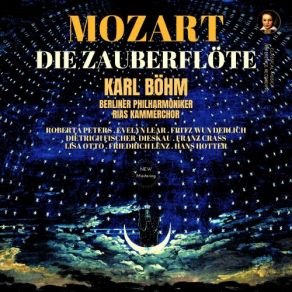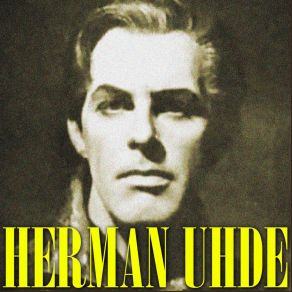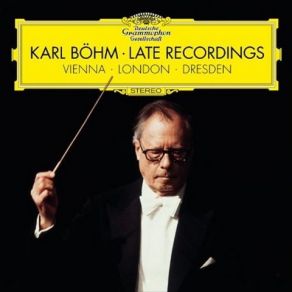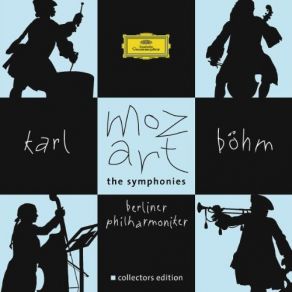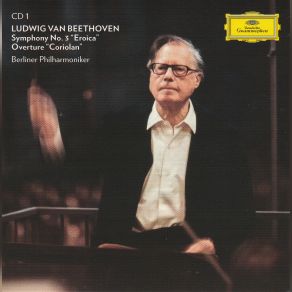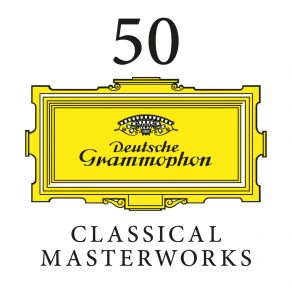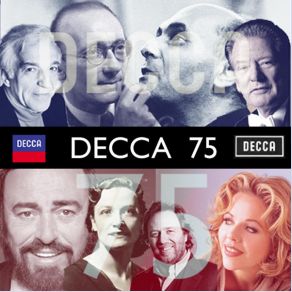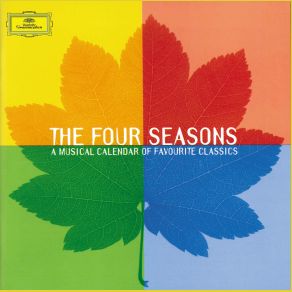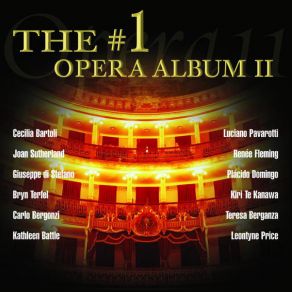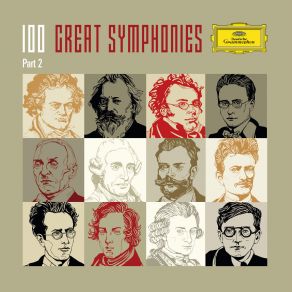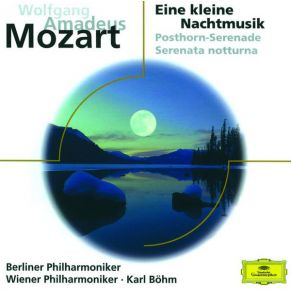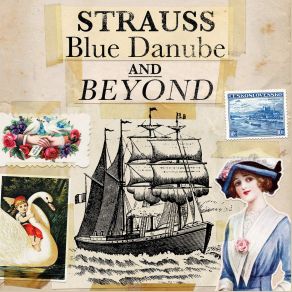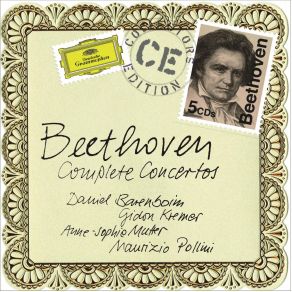Karl Böhm / Karl Bohm
Wikimp3 information about the music of Karl Böhm / Karl Bohm. On our website we have 70 albums and 70 collections of artist Karl Böhm / Karl Bohm. You can find useful information and download songs of this artist.
Biography
[Edit]One of the most acclaimed operatic and orchestral conductors of his generation, Karl Bohm was one of the most influential musicians and recording artists in the postwar classical world. As a specialist in Mozart, Wagner, and Strauss, he had few peers and his expertise extended to the music of Haydn on one end and Schoenberg and Berg on the other.
Bohm was born in Graz, Austria, of German-Bohemian descent (the name "Bohm" literally translates as "Bohemian") on his father's side and French-Alsatian background on his mother's side. He was the son of Leopold Bohm, an attorney, and the nephew of Austria's former Minister of War, General Stoger-Steiner. Bohm earned a law degree in deference to his father's wishes, but his real interest lay in music — he studied privately in Graz and later in Vienna, and by 1915 was coaching singers at the Graz Opera, even as he worked toward a career in law. He made his debut as a conductor at Graz in 1917, with Viktor Nessler's forgotten opera Der Trompeter von Sackingen, a work that Bohm later described as "something for the tastes of a provincial choral society." In 1919 he received his doctorate in law, but Bohm had already begun a serious career in music.
Bohm's first great triumph came soon after, with the Graz production of Wagner's Lohengrin, for which he added extra singers from the city's choral society, and then spent months rehearsing every part in painstaking detail, even singing each part himself with the vocalists — although he wore out his own health with this effort, the resulting performances were an artistic and critical triumph that had far-reaching consequences for Bohm. Among those in attendance at the performance was Karl Muck, one of the leading conductors of the day, famed at the time for his work at Bayreuth as well as with the Boston Symphony Orchestra. Muck offered to train Bohm further in Wagner's music, and the younger man spent his apprenticeship with Muck working on the Ring cycle, Parsifal, Tristan und Isolde, and Meistersinger. It was with this groundwork that Bohm was prepared to work on a new production of Tristan, which became one of the works for which Bohm was most famous.
In 1921, Bohm was solidly entrenched in Graz when he was offered the chance to join the Munich State Opera as an assistant to Bruno Walter, the leading light among the younger generation of conductors. The circumstances of his audition were most unusual — he was allowed the chance to conduct Weber's Der Freischutz with only a single hour's rehearsal for the orchestra, which allowed him to work on only one of the opera's three acts. He chose the third act, and in one scene noted the absence of clarinets, over the passage where the Hermit enters. The musicians insisted there was no clarinet part, and Bohm ordered the score out of archives — he found the clarinet part, obscured under the stains from oil lamps, and received the congratulations of Walter and the job as his assistant. Bohm later described this seeming reduction in rank, to assistant conductor of a first-rate opera company, as a vital element in his education. He spent six years in Munich working under Walter, conducting 528 performances of 73 different operas, a unique and priceless learning experience.
The most important part of this experience lay with Mozart's and Wagner's operas. In 1927, Bohm accepted an appointment as music director at Darmstadt, where he gained further experience conducting modern operatic works, including Berg's Wozzeck.
Fate played a hand in 1930 when Bohm conducted Beethoven's Fidelio in Darmstadt as part of a celebration of the 150th anniversary of Beethoven's birth. The Ninth Symphony had received a lackluster performance under another conductor; when Bohm's performance of the opera rescued the festivities, with one critic writing "That was the Beethoven celebration. That was the Beethoven celebration." Fidelio was to remain at the core of his repertory over the next 50 years.
In 1931, Bohm moved on to the same position at the Hamburg Opera, and in 1933, he met Richard Strauss for the first time, when the composer came to Hamburg to help in the preparation of the premiere of his opera Arabella. Bohm's contact with Strauss was a pivotal moment in his career on several levels, leading not only to a close relationship between the two for the next 16 years, but to a much deeper understanding of Mozart's operas, growing out of Strauss' devotion to Mozart. Bohm also became an increasingly familiar figure at the podium in the concert hall, and made his debut with the Vienna Symphony in the early '30s. His first chance to conduct the Vienna Philharmonic came in April of 1933 when the orchestra's music director, Clemens Krauss, resigned and Bohm stepped into the breach for a concert. It marked the beginning of a long, productive relationship with the orchestra.
Bohm faced his first career setback in 1933 following the rise of the Nazi Party in Germany. He was called to the office of an attorney in Hamburg who had assumed the post of the party's official representative in the city, and was informed that the current music director, as a non-Aryan, would momentarily be dismissed, and that Bohm was the logical choice for the job — but for the fact that they could find no record of his party membership. When confronted about what party he belonged to, the conductor replied "Music." He was denied the post after refusing to join the Nazi Party.
In 1934, following Fritz Busch's forced resignation as music director of the Dresden Opera, Bohm took up the Dresden post. Although he was later criticized for this, Bohm retained a cordial friendship with Busch himself. The Dresden post led to other appointments, which, in turn, resulted in the beginning of his international career. In the mid-'30s, he made his London debut at Covent Garden and Queen's Hall, conducting the Saxon State Opera and Orchestra.
Bohm's musical activities during the Nazi era were extensive, both in Germany and Austria, where he conducted many of the Vienna Philharmonic's subscription concerts following the country's annexation by Germany in 1938, and became director of the Vienna State Opera on January 1, 1943, a post that he held until the Allied victory in 1945. He recorded many works with the Vienna Opera and Philharmonic, as well as the Dresden Staatskapelle Orchestra. Among Bohm's important and groundbreaking recordings during this era were the Bruckner Symphonies Nos. 4 and 5, several of Strauss' and Mozart's operas, and the symphonies of Mozart and Brahms, among others.
Bohm's activities during World War II were seldom written about during his lifetime, although they were much discussed. On one level, he was courageous musical figure, championing the music of Richard Strauss, conducting the opera Die Schweigsame Frau ("The Silent Woman") despite the official disdain with which the work — with its libretto written by the outlawed, "non-Aryan" Stefan Zweig — was held in official government circles (Hitler himself, at Strauss' heartfelt and unyielding insistence, allowed an exception to the ban on performance, but then declined to attend), and Strauss' subsequent opera, Daphne, which was dedicated to Bohm. He also sheltered a Jewish industrialist for over a year in Vienna, quietly challenging the Nazi-era regime, even as he participated in official functions on behalf of the government and the party.
As director of the Vienna State Opera, Bohm brought the company's standards back up from a low that they'd hit at the end of 1938, after the impact of the German annexation and the departure of many of the company's best musicians. During the war, he conducted the work of such other contemporary composers as Hans Pfitzner and Theodore Berger, but his most important commitment was to Richard Strauss. From the comparative safety of Vienna, where Strauss had fled — under the protection of the appointed governor — after his falling out with Nazi officialdom, Bohm staged an 80th birthday celebration of the composer's music.
Bohm was banned from public performances in Germany and Austria in the wake of the Allied victory in 1945, but he became a frequent guest of opera companies elsewhere in Europe, and from 1950 until 1954 served as director of German repertory at the Teatro Colon in Buenos Aires, Argentina. In 1954, he returned to Vienna and, in a bitter victory over his rival Clemens Krauss, was given the directorship of the Vienna State Opera, where he conducted the production of Beethoven's Fidelio that not only reopened the rebuilt opera house, but was the subject of an NBC prime-time network special (Call to Freedom) early in 1956. Among his most notable recordings during this period in Vienna was his performance of Strauss' Die Frau Ohne Schatten for English Decca. In February of 1956, Bohm also made his long-delayed debut in America, as a guest conductor of the Chicago Symphony Orchestra.
In March of 1956 he resigned from the Vienna Philharmonic's music directorship amid criticism over his frequent absences from the city. Bohm never took another music director's spot, preferring conducting to the distractions of administration.
His Metropolitan Opera debut, and his first performance in Manhattan, took place on October 28, 1957, when he opened the company's 1957-1958 season with a new production of Mozart's Don Giovanni, in which Bohm's work was reviewed as "an artistic sensation...cast[ing] its spell over a grateful audience." Bohm was later praised in the New York Herald Tribune for welding an often competitive group of singers into "the most patrician operatic ensemble imaginable." In the 1959 season, he not only revived Don Giovanni, but conducted a highly praised new production of Wagner's Die Meistersinger Von Nurnburg, and, later still, Alban Berg's Wozzeck.
In 1960, Bohm made his Carnegie Hall debut conducting the New York Philharmonic for the first time, in a program of pieces by Mozart, Hindemith, and Brahms that was a great critical and popular success. In 1961, he brought the Berlin Philharmonic on tour of the United States, conducting a program that included Strauss' Don Juan and Beethoven's Symphony No. 7. That same year, he also conducted Wagner's Parsifal at the Metropolitan Opera for the first time. And with the New York Philharmonic in November of 1962, now at their new home in Philharmonic (later Avery Fisher) Hall at Lincoln Center, he conducted Mozart's Symphony No. 41 (Jupiter) and Bruckner's Symphony No. 7 which, in those days, was still a work little heard in the United States.
During this same period, Bohm's son, the actor Carl (aka Karlheinz) Boehm, achieved some prominence in international movies. During the early '60s, he was seen in major roles in such blockbusters as MGM's The Four Horsemen of the Apocalypse and The Wonderful World of the Brothers Grimm, although his best starring part was as the lead in Michael Powell's classic Peeping Tom.
Even as Karl Bohm's renown in America was growing, his obligations in Europe were burgeoning as well. Apart from operatic engagements and a growing body of recordings, mostly for the Deutsche Grammophon label (although the most highly praised of his three recordings of Mozart's Cosi Fan Tutte was done in London, for EMI), involved work with the Berlin Philharmonic, the Berlin Radio Symphony Orchestra, the London Symphony Orchestra (of which he also served as president), the Philharmonia Orchestra in London, the Saxon State Orchestra, the Vienna Symphony, and the Vienna Philharmonic. His repertory by this time embraced everything from Haydn and Mozart to Berg and Schoenberg, and in addition to steady concert commitments throughout the '60s and '70s, he also made hundreds of recordings for Deutsche Grammophon, including new performances (primarily live) of virtually all of Richard Strauss' major operas, all of the Mozart operas, the Beethoven symphonies, the late Mozart symphonies, and most of the rest of his repertory, up to and including 20th century works. In 1964, in recognition of his career, the Austrian government granted Bohm the honorary title of "General Music Director of Austria," while in Germany, a statue of the conductor stands at the Berlin Opera House.
His greatest American triumph took place in October of 1966, when he conducted Strauss' Die Frau Ohne Schatten at the Metropolitan Opera. In its review of the concert, The New York Times critic wrote of Bohm, "Among the present group of Met opera conductors, he towers like a colossus."
In 1967, Bohm brought the Vienna Philharmonic to Carnegie Hall and the Montreal Worlds Fair ("Expo '67"), and under Bohm's baton the Vienna Philharmonic later played a role in the 125th anniversary celebration of the New York Philharmonic's founding. With the deaths of Furtwangler, Walter, and Klemperer, Bohm was the last conductor from 19th-century Austria or Germany to remain active into the 1970s, and his work continued at a furious pace — including tours of Japan with the Vienna Philharmonic — until he suffered a stroke in 1981, from which he never fully recovered.
Bohm's recordings are noted for their elegance of nuance. A distinctly restrained figure at the podium, he encouraged precise playing from his musicians, and painstaking rehearsal from his singers. With this approach, he was able to coax exceptionally fine performances from orchestras and casts of decidedly uneven capabilities, allowing them to rise to the occasion of his performances, and superb work from ensembles such as the Vienna, Berlin, and New York Philharmonic orchestras.
Bohm's 1930s Dresden performances of Bruckner's symphonies, which have been reissued on CD by various private labels, are of particular note for the absence of the Wagnerian bombast with which these works were usually treated. Part of the explanation for Bohm's differing approach, according to some scholars, play with the fact that the Dresden orchestra members were equipped with notably old instruments, dating to Bruckner's own time, which created a sound more in keeping with the actual scores as they were known at the time, and less bombastic than newer, more "efficient" instruments, could produce. His complete recordings in Germany and Austria from 1933 through 1945 comprised a set of more than 20 long-playing records.
His early-'40s recordings with the Vienna Philharmonic are fascinating, despite their obvious sonic deficiencies. His Brahms Symphonies Nos. 1 and 2 are especially compelling, although his recording of the Mozart Symphony No. 35 has long since been supplanted by his stereo version on Deutsche Grammophon. It is Bohm's modern recordings for Deutsche Grammophon that are considered the core of his legacy. This includes his recordings of Richard Strauss' music, orchestral and operatic, which have few equals — only Rudolf Kempe and Herbert Von Karajan — and his Beethoven, Mozart, Bruckner and Schubert are also considered to be among the finest available. His performances are noted for their carefully nuanced playing, without the bombast of Von Karajan's interpretations.
Title: Brahms: Concerto No. 1
Artist: Wiener Philharmoniker, Wilhelm Backhaus, Karl Böhm / Karl Bohm
Genre:
Title: Beethoven: Piano Concerto No. 5
Artist: Wiener Philharmoniker, Maurizio Pollini, Karl Böhm / Karl Bohm
Genre: Classical
Title: Ludwig Van Beethoven - Sinfonie No. 9 (Vinyl Rip)
Artist: Karl Böhm / Karl Bohm
Genre: Instrumental, Classical, Symphonic
Title: Herman Uhde
Artist: Karl Böhm / Karl Bohm, Herman Uhde, Orchestra Del Teatro Metroplitan
Genre: Opera
Title: Wilhelm Backhaus plays (1950, 1961)
Artist: Wiener Philharmoniker, Wilhelm Backhaus, Karl Böhm / Karl Bohm
Genre:
Title: Reger: Variations & Fugue On a Theme of Mozart, Op. 132
Artist: Staatskapelle Dresden, Karl Böhm / Karl Bohm
Genre:
Title: Schubert: Symphony No. 8 - Brahms: Symphony No. 1
Artist: Wiener Philharmoniker, Karl Böhm / Karl Bohm
Genre:
Title: Beethoven: Piano Concertos Nos. 3 & 4
Artist: Wiener Philharmoniker, Maurizio Pollini, Karl Böhm / Karl Bohm
Genre:
Title: Karl Böhm: Great Recordings (CD08)
Artist: Dietrich Fischer - Dieskau, Karl Böhm / Karl Bohm
Genre: Classical
Title: Karl Böhm - Mozart / Karl Bohm - Mozart
Artist: Wiener Philharmoniker, Karl Böhm / Karl Bohm
Genre: Opera
Title: Richard Wagner: Der Ring Des Nibelungen (CD3)
Artist: Wagner, Karl Böhm / Karl Bohm
Title: Beethoven: Piano Concerto No.5
Artist: Wiener Philharmoniker, Maurizio Pollini, Karl Böhm / Karl Bohm
Genre: Classical
Title: Anton Bruckner: Symphony No. 4 in E-Flat Major
Artist: Karl Böhm / Karl Bohm, Sachsische Staatskapelle
Genre:
Title: Johannes Brahms: Symphony No. 3 in F Major
Artist: Wiener Philharmoniker, Karl Böhm / Karl Bohm
Genre:
Title: Beethoven: Violin Concerto Op. 61 - Mozart: Symphony No. 35
Artist: Karl Böhm / Karl Bohm
Genre: Orchestral, Orchestral
Title: Schubert: Unfinished Symphony - Beethoven: Symphony No. 8
Artist: Wiener Philharmoniker, Karl Böhm / Karl Bohm
Genre:
Collections
Title: 50 Classical Masterworks
Genre: Classical
Title: Opera Obsession! Act III Opera's Greatest Hits
Genre: Opera
Title: Decca 75 - A Celebration
Genre:
Title: The World's Favourite Operatic Overtures
Genre: Opera
Title: The 50 Most Essential Classical Music Pieces Ever
Genre:
Title: A Classical Weekend
Genre:
Title: The Decca Sound - Highlights
Genre:
Title: 300 Minutes of Classical Music
Genre: Classical
Title: The #1 Opera Album II
Genre: Opera
Title: The 44 Most Essential Arias
Genre:
Title: The Mozart Christmas Collection
Genre:
Title: KidzTown: Beethoven
Genre: Kids
Title: The 99 Most Essential Mozart Masterpieces
Genre:
Title: 50 Essential Classical Pieces
Genre:
Title: Mozart 250 (iTunes Exclusive)
Genre:
Title: Masters of the Voice - Tenor
Genre:
Title: Sinfini Music: Best Orchestral
Genre:
Title: 100 Great Symphonies (Part 2)
Genre:
Title: 100 Great Symphonies (Pt. 1)
Genre: Orchestral, Orchestral
Title: 111 Amazing Classical: Lounge Music
Genre:
Title: A Classical Encyclopedia: Y as in Yoga
Genre:
Title: A Classical Encyclopedia: O As in Opera
Genre: Opera
Title: Wagner: Opera Hits
Genre: Classical
Title: The Opera hits of: Wagner
Genre: Classical
Title: The Stars perform Wagner
Title: Mozart: Don Giovanni, Eien Kleine Nachtmusik, Etc.
Genre:
Title: Schubert: Symphony Nos. 8 & 9
Genre:
Title: Mozart: Serenade No. 13, K. 525 & No. 9, K. 320 & K. 239
Genre:
Title: For a Stormy Night
Genre:
Title: Ultimate Mozart
Genre:
Title: Wagner: Opera Favorites
Genre: Opera
Title: A Romantic Weekend
Genre:
Title: Mozart: Top 10 from Amadeus
Genre:
Title: Wagner: The Opera Highlights
Genre: Classical
Title: Mozart: Soul
Genre:
Title: Verdi Vs. Wagner
Genre: Classical
Title: Late Night Classics
Genre:
Title: Strauss - Blue Danube and Beyond
Genre: Classical
Title: The Essential Classical Wedding Music
Genre:
Title: Classical Seduction!
Genre:
Title: A Tenor Weekend
Genre: Opera
Title: Mozart: Serenade & Divertimento
Genre:
Title: The Classical Guide to Mozart
Genre:
Title: 20 Fantastic Overtures
Genre: Classical
Title: Trésors Classiques, Vol. 2 / Tresors Classiques, Vol. 2
Genre:
Title: A Soprano Weekend
Genre: Opera
Title: Heavy Classix - The Ultimate Collection
Genre:
Title: Wagner: Flying Dutchman; Parsifal etc. (Highlights)
Genre: Opera
Title: The Best of Mozart: 50 Essential Pieces
Genre:
Title: Mozart: Body
Genre:
Title: 50 Classical Masterpieces
Genre:
Title: Alban Berg: Wozzeck (Live In New York 1959)
Genre: Opera
Title: Famous Classical Themes from the Movies
Genre:
Title: #nowplaying Mozart
Genre:
Title: Nessun Dorma - The Greatest Opera Pieces
Genre:
Title: The Very Best Classical Anthems
Genre:
Title: Twilight Of The Gods: The Essential Wagner Collection
Genre:
Title: 50 Classical Masterpieces
Genre:
Title: Top 100 Mozart
Genre:
Title: Baby Mozart: 5 Hours of Classical Music for Smart Kids
Genre:
Title: Sinfini Music: Best Tenors
Genre:
Title: The 99 Most Essential Masterpieces of the Classical Era
Genre:
Featuring albums
Title: The Man Who Wasn't There (Sountrack from the Motion Picture)
Artist: Carter Burwell
Genre: Theatre/Soundtrack
Title: Beethoven: Complete Concertos
Artist: Maurizio Pollini, Gidon Kremer, Daniel Barenboim
Genre:
Title: Voices of Opera: Tenors
Artist: Plácido Domingo / Placido Domingo, Charlie Daniels, Nicolai Gedda, Luciano Pavarotti, Carlo Bergonzi, Mario Del Monaco, Giuseppe Di Stefano, Jerry Hadley, Jussi Björling / Jussi Bjorling, Gianni Poggi, Robert Tear, John Mark Ainsley, Andreas Scholl, Franco Corelli, Fritz Wunderlich, Jose Carreras, James McCracken, Leopold Simoneau, Alvinio Misciano, David Galliver
Genre: World Music, Opera
Title: Mozart: Symphony No. 36 in C Major, Serenade No. 13 in G Major
Artist: BBC Symphony Orchestra, Fritz Busch
Genre:
Title: The Best Collection of Beethoven: The 9 Symphonies
Artist: George Szell, The Cleveland Orchestra
Genre:
Title: Beethoven: Coriolano Overture, Sinfonia Nos. 4 & 7
Artist: Herbert Von Karajan, Berliner Philharmoniker
Genre:
Title: Beethoven: Piano Concertos Nos. 2 & 5 "Emperor"
Artist: Wiener Philharmoniker, Maurizio Pollini
Genre:
Title: Brahms Edition: Concertos
Artist: Maurizio Pollini, Anne - Sophie Mutter, Antonio Meneses, Robert Scheiwein
Genre:
Title: Mozart: Eine kleine Nachtmusik & Posthorn Serenade
Artist: Wiener Philharmoniker, Berliner Philharmoniker, Horst Eichler
Genre:
Title: Opernwegweiser 1: Die Zauberflöte / Opernwegweiser 1: Die Zauberflote
Artist: Friederike C. Raderer
Genre:
Title: Brahms: Piano Concerto No. 2 & Mozart: Piano Concerto No. 27
Artist: Wiener Philharmoniker, Wilhelm Backhaus
Genre:
Title: Classical Masterpieces, Vol. 3
Artist: Tamás Vásáry / Tamas Vasary, Helmut Walcha, Salvatore Accardo, Daniel Barenboim
Genre:
Title: Wagner: Overtures and Preludes
Artist: Herbert Von Karajan, Berliner Philharmoniker
Genre: Opera
Title: Great Wagner Singers
Artist: Birgit Nilsson, Josef Greindl, Kirsten Flagstad, Hans Hotter, Astrid Varnay, Max Lorenz, Lauritz Melchior
Genre:
Title: Voices of Opera: Baritones and Basses
Artist: Ingvar Wixell, José Van Dam / Jose Van Dam, René Pape / Rene Pape, Theo Adam, Robert Lloyd, Tito Gobbi, Hermann Prey, Dietrich Fischer - Dieskau, Simon Keenlyside, Cesare Siepi, Ettore Bastianini, Thomas Allen, Renato Bruson, Kurt Moll, Matti Salminen, Nicolai Ghiaurov, Neal Davies, Simon Estes, Walter Berry, Bryn Terfel, Gerald Finley, Thomas Quasthoff, Trevor Anthony, John Reed, Dmitri Hvorostovsky, Wladimiro Ganzarolli, Matthias Goerne, Hans Hotter, Ludwig Weber, Eberhard Wachter
Genre: Opera
Title: James Galway & Berliner Philharmoniker
Artist: James Galway, Berliner Philharmoniker
Genre: Jazz, Smooth Jazz
Title: Voices of Opera: Sopranos
Artist: Montserrat Caballé / Montserrat Caballe, Leontyne Price, ΓΕΩΡΓΙΟΥ ΑΓΓΕΛΑ / GEORGIOU ANGELA, Mirella Freni, Anna Netrebko, Joan Sutherland, Teresa Berganza, Renata Scotto, Renata Tebaldi, Carol Vaness, Kiri Te Kanawa, Roberta Peters, Janet Baker, Birgit Nilsson, Regina Resnik, Olga Borodina, Pilar Lorengar, Marilyn Horne, Kirsten Flagstad, Elin Manahan Thomas
Genre: Opera
Title: Rita Streich - The Viennese Nightingale (Complete Lieder Recordings)
Artist: Rita Streich
Genre:
Title: Ritorna Vincitor! - The Legendary Birgit Nilsson
Artist: Birgit Nilsson
Title: Fischer-Dieskau: Early Recordings on Deutsche Grammophon
Artist: Dietrich Fischer - Dieskau
Genre: Opera
Title: Wagner: Overtures and Preludes (2 CDs)
Artist: Berliner Philharmoniker / Herbert Von Karajan
Genre: Classical
